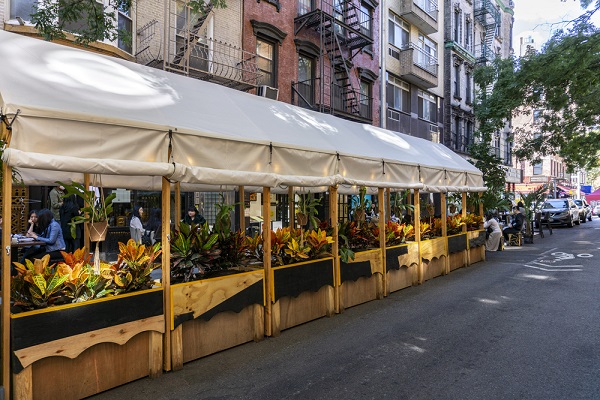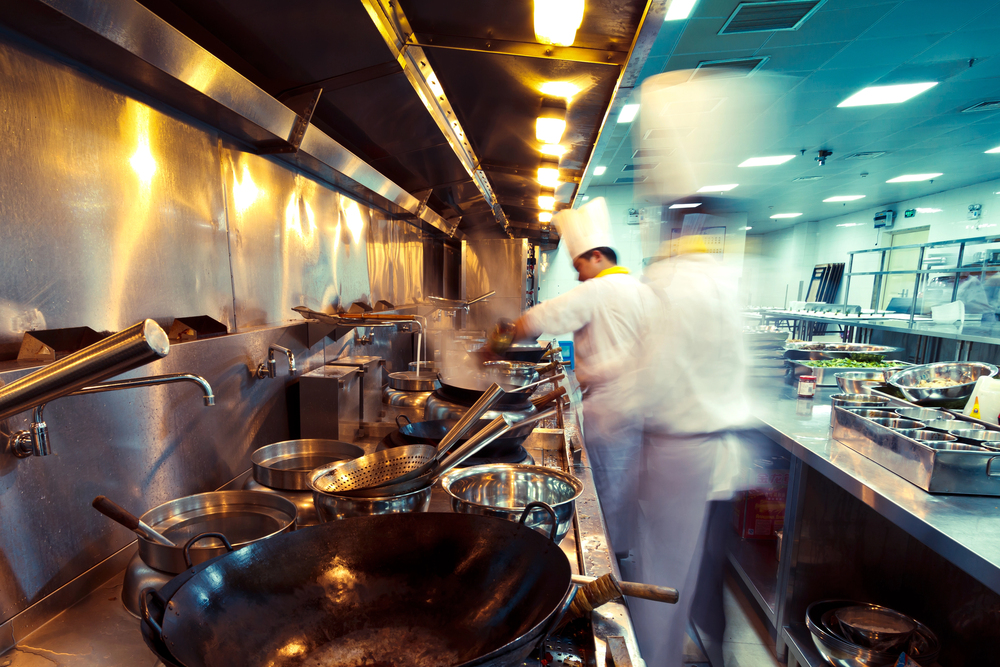The Resilience of the Restaurant Industry: Navigating Insurance Challenges in the Post-Pandemic Environment

By: William S. Hughes
The restaurant industry is on the path to recovery, showcasing remarkable resilience two years post-pandemic. According to the “2023 State of the Restaurant Industry” report by the National Restaurant Association, three out of four operators say business conditions are already returning to normal—or at least, well on the way. However, even as the sector bounces back, there are persistent challenges, notably the inflationary pressures that are driving up operational costs and, unavoidably, menu prices.
A couple of years into the post-pandemic era, the innovations born out of necessity, such as widespread outdoor dining and takeout services for food and alcohol, have become permanent fixtures in the restaurant landscape, often lasting well into the fall months. However, with these innovations come added risks and the industry is not without its share of liability, which is further impacted by staffing shortages plaguing the restaurant industry.
All these factors combined make it imperative for independent agencies to forge close partnerships with restaurant owners to help them overcome these hurdles. Strong communications between restaurant owners, independent agents and carriers are critical now.
Rising Costs and Premium Pressures
The restaurant industry is not immune to the environment of rising insurance costs. As a result of inflation and a changing property insurance market, customers, agents and carriers are all experiencing the impact of increasing costs. This is largely due to increased costs for building replacement expenses, overall inflation and the added burden of rising reinsurance rates. Despite these challenges, an insurance agent who actively participates in the risk management process becomes an invaluable resource. Midyear evaluations on sales and payroll projections can help prevent surprises at audit time and will help owners plan and budget accordingly. Collaborative efforts with restaurants are essential to navigating these complex issues and will help to ease pressures on rising insurance premiums.
Navigating Reinsurance and Inflation
Reinsurance and inflation will continue to be a challenge. Extreme weather events, including wildfires like those in Hawaii, West Coast hurricanes and widespread flooding from a rainy summer have become more frequent and severe, prompting reinsurers to significantly raise rates, particularly in property insurance. This local impact is absorbed by primary carriers, further impacting rates nationally.
Inflation continues to cause an uptick in the cost of raw materials, building materials, auto parts and labor. Supply chain pressures often lead to longer and more costly claims processing. Clear communication with customers regarding rate increases and the reasons behind them, along with the importance of adjusting property values to match inflation, becomes essential. Again, this is where constant communication is necessary as agents play a critical role in ensuring that customers have appropriate coverage limits in place to safeguard against potential losses.
Innovations Here to Stay
Outdoor dining and takeout services are more popular than ever; however, with these innovations come added risks, presenting challenges for restaurant owners. Outdoor dining at restaurants in all types of locations, including parking lots, increases the risk of vehicle crashes into buildings or patron areas. This makes it important to assess traffic patterns and implement safety measures and permanent barriers. Additionally, outdoor dining exposes restaurants to unpredictable weather or uneven terrain, leading to slips and falls. Exposure to heat can lead to food contamination risks. Proper storage and securing of outdoor furniture, providing shade, and adequate hydration becomes paramount. Customer and employee safety also hinge on location, outdoor dining equipment and placement of furniture, which can also bring added risk during powerful weather events. And takeout service, which remains a popular choice among customers, requires proper coverage for deliveries and company automobiles.
Investing in Staff Training and Hiring Challenges
Hiring and training additional staff can reduce the risk of accidents. A well-trained and appropriately staffed team can maintain service levels and attentiveness, ensuring a seamless and pleasant dining experience for patrons. A comprehensive safety training program is crucial to avoid accidents like slips and falls.
The National Restaurant Association’s study showed that finding employees remains an issue. Approximately 62% of restaurant and food service operators report a scarcity of staff to meet the surging demand for their services. Employees find themselves doing more to compensate for the shortfall, resulting in a worrisome surge in workplace injuries. Overexertion remains one of the leading causes of workplace injuries according to the National Safety Council, which is why maintaining adequate and well-trained staff is critical to preventing injuries.
The toll on employees is not only physical but also mental. Workers shoulder the burden of compensating for the staff shortfalls by taking on heavier workloads, clocking longer hours, and frequently stepping into roles for which they have little to no prior experience or training.
Innovations and Partnerships for Success
Finally, investing in connections, technology and instruments can help address some of the challenges restaurants are facing now. Independent agents should work with their customers to explore innovative solutions that can help prevent losses and headaches. For example, automatic water shutoff systems, water sensors and smart building systems could help limit damage from frozen or broken pipes. Creating a two-way conversation about the latest tools available will further embrace the power of partnership, which is key to ensuring our customers are set up for success. As trusted advisors, independent agents can continue to make a difference by delivering innovative solutions and solid advice. Proper pre-planning, risk management and consultation with their agent can provide restaurant owners with the peace of mind they need right now.
William S. Hughes is vice president, commercial lines, at Arbella Insurance Group.










